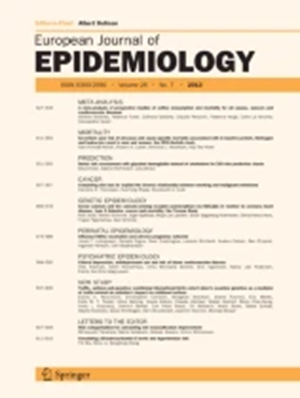评估英国武装部队人员严重身体战斗伤害的身体和心理影响- ADVANCE队列研究。
IF 5.9
1区 医学
Q1 PUBLIC, ENVIRONMENTAL & OCCUPATIONAL HEALTH
引用次数: 0
摘要
ADVANCE队列研究是一项前瞻性队列研究,调查在部署到阿富汗期间遭受严重战斗伤害对长期健康结果的影响。该队列将提供与战斗损伤相关的医疗/社会心理风险因素和结果的基本数据,并确定损伤特异性疾病机制。参与者包括遭受严重身体战斗伤害的英国武装部队人员和没有遭受此类伤害的频率匹配的对照组(未受伤组)。该队列包括1145名参与者,受伤组(n = 579)的基线缓解率为59.6%,未受伤组(n = 566)的基线缓解率为56.3%。该队列的首次随访保留了92%的样本(n = 1053/1145)。该队列简介描述了ADVANCE的基线和首次后续人口统计数据,以及已发表的研究项目的详细信息,涵盖军事流行病学、身体健康(包括心血管、呼吸、肌肉骨骼和神经)、心理健康和与健康相关的行为。这些项目包括确定疾病的早期风险因素和观察到的群体之间健康特征的差异。自队列基线评估以来,ADVANCE利用参与者参与和国际科学咨询小组的建议,扩大了生理和心理健康领域的调查。ADVANCE队列的研究人员继续与政策制定者、临床医生和参与者接触,以确保所进行的工作产生广泛的影响。注册:ADVANCE研究注册在ISRCTN ID: ISRCTN57285353。本文章由计算机程序翻译,如有差异,请以英文原文为准。
Evaluating the physical and psychosocial impact of serious physical combat injuries in UK armed forces personnel-the ADVANCE cohort study.
The ADVANCE cohort study is a prospective cohort study investigating the impact of sustaining a serious physical combat injury whilst on deployment to Afghanistan on long-term health outcomes. The cohort will provide essential data on medical/psychosocial risk factors and outcomes associated with combat injury and establish injury-specific mechanisms of disease. Participants include UK Armed Forces personnel who sustained serious physical combat injuries and a frequency-matched comparison group who sustained no such injuries (uninjured group). The cohort consists of 1145 participants, with a baseline response rate of 59.6% for the injured group (n = 579) and 56.3% for the uninjured group (n = 566). The first follow up of this cohort retained 92% of the sample (n = 1053/1145). This cohort profile describes the baseline and first follow up demographics for ADVANCE, as well as details on published research projects spanning military epidemiology, physical health, including cardiovascular, respiratory, musculoskeletal and neurological, mental health and health-related behaviours. These projects comprise identification of early risk factors for disease and observed differences in health-characteristics between groups. Since baseline assessment of the cohort, ADVANCE has expanded investigations across physical and mental health domains, utilising advice from participant engagement and an international scientific advisory group. Researchers working on the ADVANCE cohort continue to engage with policy makers, clinicians and participants to ensure a wide-ranging impact from work conducted.Registration: The ADVANCE Study is registered at ISRCTN ID: ISRCTN57285353.
求助全文
通过发布文献求助,成功后即可免费获取论文全文。
去求助
来源期刊

European Journal of Epidemiology
医学-公共卫生、环境卫生与职业卫生
CiteScore
21.40
自引率
1.50%
发文量
109
审稿时长
6-12 weeks
期刊介绍:
The European Journal of Epidemiology, established in 1985, is a peer-reviewed publication that provides a platform for discussions on epidemiology in its broadest sense. It covers various aspects of epidemiologic research and statistical methods. The journal facilitates communication between researchers, educators, and practitioners in epidemiology, including those in clinical and community medicine. Contributions from diverse fields such as public health, preventive medicine, clinical medicine, health economics, and computational biology and data science, in relation to health and disease, are encouraged. While accepting submissions from all over the world, the journal particularly emphasizes European topics relevant to epidemiology. The published articles consist of empirical research findings, developments in methodology, and opinion pieces.
 求助内容:
求助内容: 应助结果提醒方式:
应助结果提醒方式:


